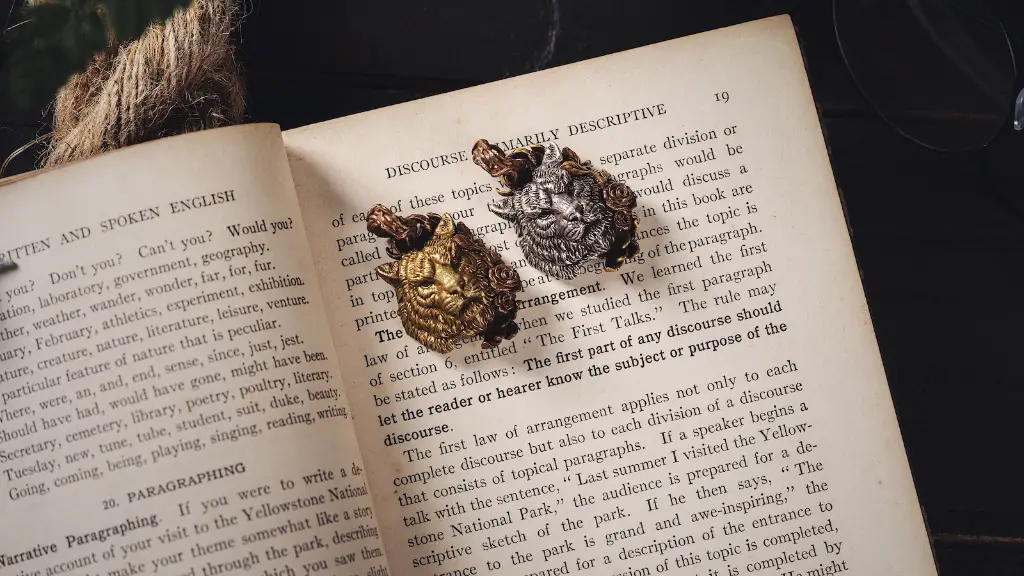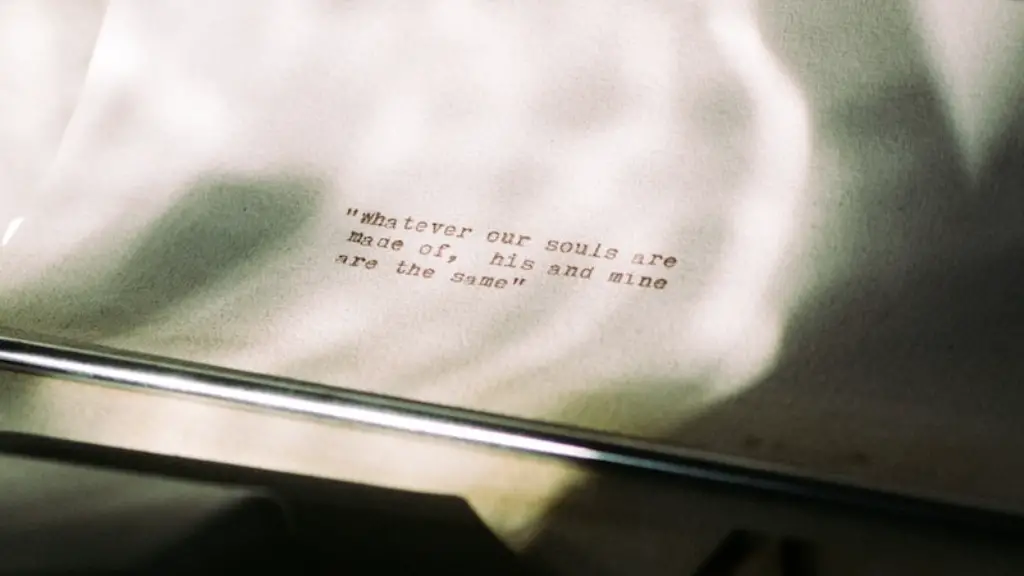Poetry has long been known as the pinnacle of literature. And yet, despite its veneration and status, it remains mainly unread or even considered boring to many. After all, it can be difficult—not to mention tortuous—to plod through and comprehend the often dense and layered language of poetry. So why, then, is poetry so often described as boring?
To begin with, poetry often utilizes antiquated language with complex grammar, syntax, and vocabulary that can be very challenging for those less accustomed to literature. Most poetry written before the 20th century typically contains language that has become obsolete along with certain structures like sonnets and iambic pentameter. As a result, readers can become quickly discouraged when attempting to process the language of a poem.
Poems also often don’t provide enough context for a reader to easily jump in and begin to pore over the lines and comprehend the complete meaning of the poem. To understand the true message and meaning of a poem, most readers would need an intimate knowledge of the historical context and/or a familiarity with literary movements and the author’s background. Without this context, a poem can seem cryptic or detached, preventing a reader’s full appreciation.
In the case of modern poetry, some readers can be put off by the intense symbolism or abstract language used. Those who might find more traditional forms of literature enjoyable may be turned away by the lack of structure in contemporary poetry, as the feelings behind them can be difficult to illustrate without that structure.
In addition, the fact that poetry tends to be a solo journey in decipherment can be a difficult barrier to overcome. Whereas novels often provide plot and character arcs to follow, poetry often falls short in this regard, making it a less enjoyable detour for many readers.
So, why is poetry so boring? Some might say that poetry is simply not for everyone, and it’s a matter of personal preference. With its unfamiliar language, intricate symbolism, and lack of structure, understanding poetry can be uniquely challenging for many readers. Although difficult and daunting, it’s possible to distill the beauty and allure of poetry to bring more enjoyment, however.
Explore Poetic Genres
To start, an exploration of poetry genres can help to expand a reader’s horizons. There are numerous poetic forms and subgenres, including sonnets, limericks, and haiku, that provide both structure and appeal. Some forms of poetry, such as haiku and limericks, can provide language that is closer to the vernacular. Haiku also provide a linear narrative that can be more inviting to follow than other forms of poetry, while sonnets provide a rhyme and rhythm through which readers can truly sink their teeth into the structure.
Developing an understanding of the different poetic forms can also give readers more access to the language of the poem. A deeper understanding of the language can unlock not only the beauty and power of each poem’s words, but also the message of the poem on a deeper level—which is often the most intriguing part of poetry.
Often, the emotion contained within a poem is the most captivating thing about it. Through exploring poetic forms, readers can come to appreciate different poet’s feelings without having to read the entire poem. Haikus, for example, feature three lines; by reading and reflecting on the first two lines, readers can more easily understand what the poem is trying to convey and gain insight into hidden meanings.
Moreover, exploring and reading different poetry subgenres can serve as gateway for readers to dive deeper into the world of poetry. Readers may find that after exploring particular genres, some pieces of poetry that seemed boring prior to reading can become more appealing and captivating.
Find Your Own Path
When exploring poetry, readers should also make sure to find their own path. By that, I mean they should read only what they’re interested in, and understand that if a particular poem, author, or genre bores them, they can look elsewhere for something new and personally engaging.
If readers are exploring multiple genres and poems, they should try to avoid falling into the trap of reading only one type of poetry because they feel like they have to. Those first few poems that seem boring can be quickly discarded; this allows readers to focus on the material that actively engages them and avoid having to fight against boredom. Refocusing on poems that capture the reader’s interest can allow for an entirely different and enjoyable reading experience.
Additionally, when reading poetry, readers should focus on the various interpretations of the poem. By looking into the various meanings associated with a poem, readers can connect more deeply with the material and perhaps even gain an understanding of the various aspects of the poem that hold the most interest for them.
Readers can also make use of the many resources available online. Educational sites such as PoetryFoundation.org and Poetry.org offer artful readings of some of the most beloved poems throughout history. Additionally, social media pages and forums such as Reddit can be great places to discuss and gain insight in the poetry being read.
Finding the Fun
By following the tips mentioned above, readers can start to find the fun in poetry. This can range from exploring new subgenres to finding the nuances in individual poems. It’s important, though, to remember to keep an open mind when approaching poetry.
Readers should also make sure to connect the themes of the poetry to their own lives. Any particular poem might be referencing a specific feeling, but it could also be applied to many other areas of readers’ own lives. Taking the time to make this connection can be a rewarding experience, as it can help to illustrate how universal certain feelings can be.
In essence, when it comes to understanding—and appreciating—poetry, the key lies in exploring, connecting, and discovering the gems that are already there. With the right mindset and a dedication to making the effort, poetry doesn’t have to seem boring or mundane. Rather, it can be a compelling way to unleash creativity and appreciate the beauty of language.
Differentiate Poetry From Prose
When reading poetry, understanding the fundamental differences between poetry and prose can be extremely beneficial. Prose novels and stories tend to have a linear structure and comprehensive plot, while poetry requires more inferential analysis in order to decipher its message and intent. Poetry often encompasses dense language and imagery in order to depict abstract themes and feelings, while prose attempts to do this in a more straightforward manner.
By understanding the differences between prose and poetry, readers can start to recognize that there isn’t a ‘one size fits all’ approach when it comes to writing—nor to reading it either. Poetry can be a captivating and engaging art form, but only when it is approached in the right way.
For instance, readers should remember that some lines and verses in a poem may seem confusing or even nonsensical at first glance, but may carry more complicated and meaningful connotations upon further reading. Additionally, some lines of a poem may evoke strong emotions, while others may serve as a more intellectual exploration. In order to identify and appreciate these nuances, readers should focus on the language and imagery of the poem.
Don’t Give Up
Overall, the key to learning to appreciate poetry is to not give up. Poetry can seem insurmountable at first, but with enough patience and effort, readers can discover a wide range of emotions and mental images hidden within it.
The most important thing for readers to remember when it comes to poetry is to not allow themselves to get bogged down with the complex language and symbolism. Taking the time to explore different genres and to build a personal interpretation is the true path to finding the beauty of poetry.
Above all, readers should approach poetry with a layman’s understanding. By doing this, they can strip away the intimidating language and discover the hidden meanings behind each poem. As with any other form of literature, the journey is half the fun, and by not giving up, readers can discover that poetry can be as captivating as any story they’ve ever read.





